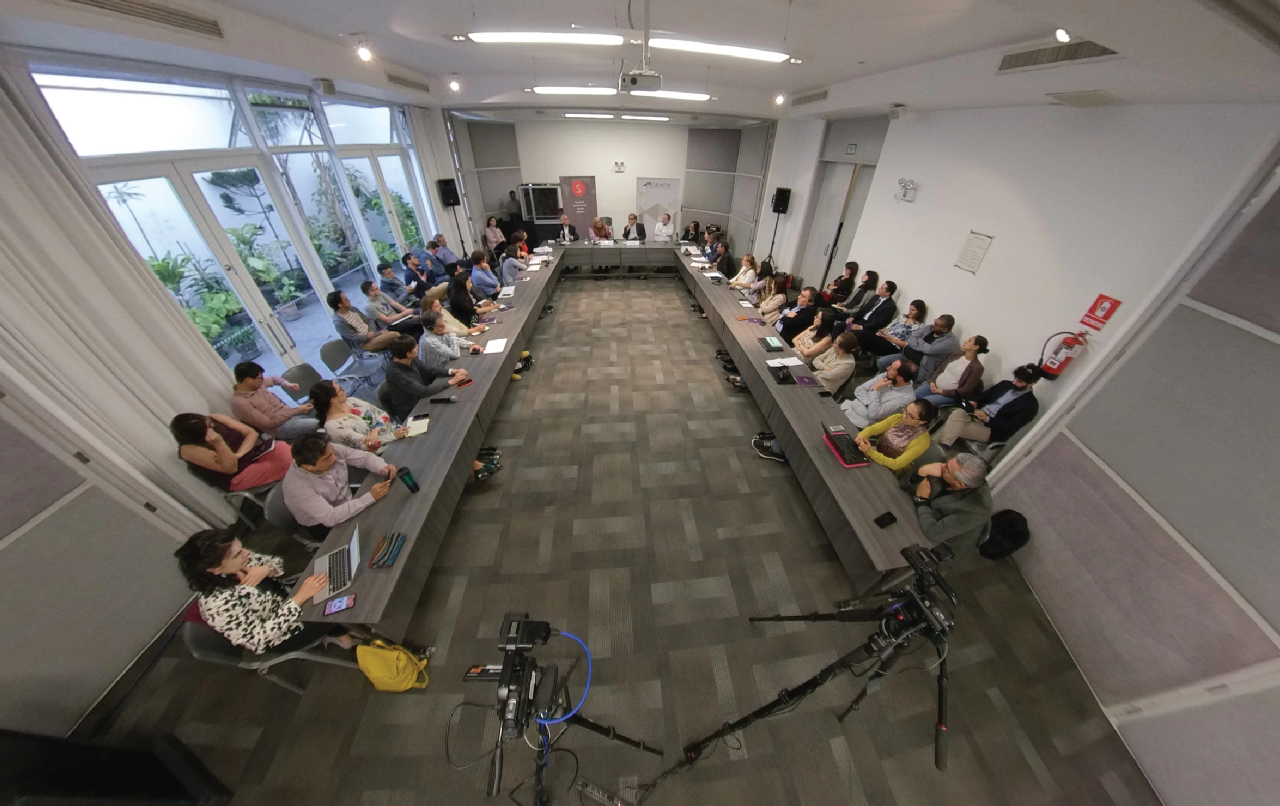Southern Voice will host its first General Assembly on 14 November 2018 in Bangkok, Thailand. Venue: Sigma (6th Floor), Pullman Bangkok…
Southern Voice and the Group for the Analysis of Development (GRADE) came together to host an event titled: “2030 Agenda: promoting Global South research within international debates”.
It was an opportunity to present Southern Voice’s research to the Peruvian policy and academic community, but also to officially celebrate the selection of GRADE as Southern Voice’s new host. Santiago Cueto, Executive Director of GRADE, welcomed the attendants and explained the relationship between the host organisation and Southern Voice. He was joined by Debapriya Bhattacharya, Chair of Southern Voice, who presented the network, its story and its mission. He talked about the significant participation deficit of southern scholars in global development debates and how the network is a response to that: “We thought: we will take this up as a challenge, and articulate from the Southern perspective what the post-MDGs era should look like. This was the beginning of Southern Voice.”
Andrea Ordóñez, Director of Southern Voice, moderated the panel discussion in a Q&A style conversation. The discussion focused on the challenges and opportunities for researchers from the Global South in international debates, and how cross-regional collaboration can enhance their work. The panellists representing the Southern Voice network talked about their recent experience and findings within the “State of the SDGs” initiative (SVSS).
Speakers included Chukwuka Onyekwena, from CSEA – Nigeria. He talked about the organisation’s SVSS study. CSEA uncovered the dimensions that make it more likely to be left behind in a country like Nigeria, namely gender, early marriage, religious practices and the urban vs rural gap. The most affected ones are women in rural areas in northern Nigeria. Essential lessons for other countries are that excluded groups need to be targeted to help them achieve the SDGs, but always keeping in mind each country’s context. You can read more about the study by CSEA here.
Lorena Alcazar, from GRADE – Peru, talked about the findings of their SVSS research as well. She said that in Peru “the ‘left behind’ is the woman with children, of indigenous background and from rural areas”. Find out more about GRADE’s study here.
Karin Fernando represented CEPA, from Sri Lanka. She focused on how global issues affect the local garment industry in her country, looking in particular at the impact of the 4IR. While the 4IR creates lots of growth opportunity, low-end jobs are becoming less desirable. “Low-income countries are trapped in a Global Value Chain, where things have to move very quickly. 4IR is increasing efficiency, but jobs are getting much more monotonous and target-driven,” she explained. You can read more about the study here.
Two discussants were invited. They were Javier Abugattás from Center for Strategic Planning CEPLAN, and Denise Ledgard from UNDP Peru. Mr Abugattás talked about the long term vision for Peru, based on the Voluntary National Review and its implementation in policy planning. Ms Ledgard mentioned the three main problems in Latin America: low support for democracy, high perception of corruption and unattended security issues.
The panel discussion was followed by a lively Q&A session and a cocktail. The event took place on November 26, 2019, at the premises of the Southern Voice’s host organisation, GRADE, in Lima. You can re-watch the event here.


